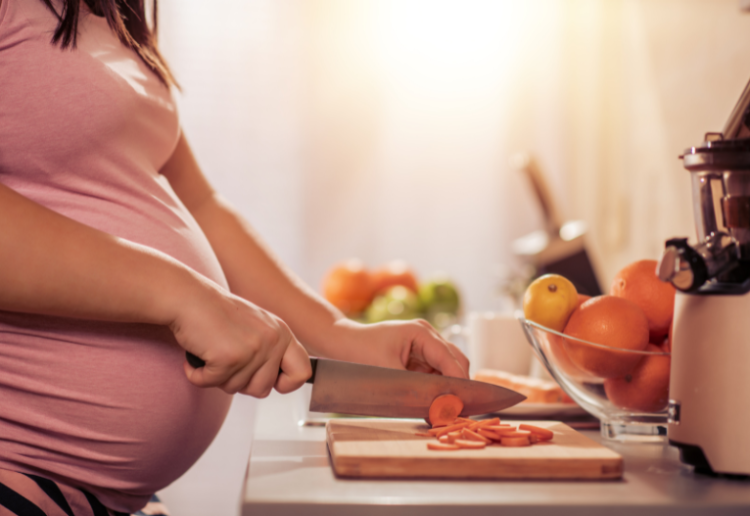Listeria outbreaks across three Australian states have prompted authorities to issue a warning to those at highest risk of severe illness, including pregnant women.
Cases of infection from the potentially deadly bacteria have been diagnosed in NSW, Queensland and Victoria, but as yet no source has been found.
Listeria Outbreak Latest
Queensland Health says authorities across Australia are continuing to investigate three seperate, genetically related clusters of Listeria infection. While there have been no reported deaths, more cases are expected.
“There is potential for further cases to be notified as part of this outbreak as it can take up to two months for symptoms to appear after eating food contaminated with listeria,” Queensland’s Chief Health Officer Dr John Gerrard said.
Cases have been reported in Brisbane and on the Sunshine Coast.
“We are investigating several potential food sources, with tests currently under way. We expect more results to come through in the coming week.”
So far this year, there have been eight listeriosis cases reported in Queensland, which is similar to the nine cases reported in the same period in 2019 before the pandemic.
The Victorian Department of Health has also confirmed listeria cases in the state.
“Victoria is liaising with the Commonwealth and other States and Territories to investigate and manage these clusters,” a department spokesperson said in a statement.
NSW Health recently expressed concern at the number of rising cases of listeriosis.
“Already in 2023, we’ve recorded 25 cases of listeriosis among NSW residents, which is more than we usually expect to see in a whole year,” Director of NSW Health’s One Health branch, Keira Glasgow said on September 8.
“There are a range of foods that present very real risks to people who are older, pregnant or have underlying health conditions such as cancer, diabetes, heart, liver, or kidney disease, or who are on medications such as corticosteroids which impact immune systems.
“That’s why NSW Health is reminding these vulnerable people to be aware of the foods that present these risks. It’s vital these people choose safer options at all times.”

What is listeriosis?
According to NSW Health, listeriosis is a rare illness caused by eating food that’s been contaminated with the bacteria Listeria monocytogenes. The bacteria are common in some raw foods, but for most people, eating food with the bacteria doesn’t cause illness. Although listeriosis is rare, the death rate is high.
Listeriosis symptoms
It can take between three and 70 days for symptoms to appear, but the average is three weeks.
Symptoms include:
- fever
- muscle aches
- gastrointestinal symptoms such as nausea and diarrhoea
In the more severe form, symptoms also include collapse and shock and if infection spreads to the central nervous system, symptoms such as headache, stiff neck, confusion, loss of balance, convulsions and coma can occur. NSW Health says bout a third of these patients may die.
How is listeriosis spread?
The most common way listeriosis is spread is through raw meat, unpasteurised milk, raw fruit and vegetables which are contaminated with the bacteria.
It’s particularly concerning for pregnant women, because babies can be born with listeriosis if their mums eat contaminated food while pregnant.

Pregnant women are urged not to consume raw milk, soft cheeses, pre-prepared salads (for example, from salad bars), unwashed raw vegetables, paté, cold diced chicken, rockmelon and pre-cut fruit and fruit salad, which have all been linked to outbreaks of the illness in the past.
All high-risk people, including pregnant women, the elderly and people with weakened immune systems should not eat:
- rockmelon
- pre-cut fruit or pre-prepared fruit, including fruit salad (pre-packaged, from buffets or from salad bars)
- pre-packed cold salads, including coleslaw (pre-packaged, from buffets or from salad bars)
- frozen vegetables, unless cooked
- pre-cooked cold chicken (whole, portions or diced)
- cold delicatessen meats (freshly sliced, pre-packaged or from sandwich bars)
- paté or meat spreads
- raw seafood
- smoked seafood (for example, smoked salmon), unless cooked and served hot
- chilled seafood (for example, ready-to-eat prawns)
- unpasteurised milk or milk products
- soft cheeses such as brie, camembert, ricotta, or blue-vein (unless cooked and eaten while hot)
- soft serve ice cream
- sprouted seeds
How to prevent listeriosis
NSW Health has offered the following tips to prevent listeriosis:
- avoid high risk foods
- thoroughly cook raw food from animal sources, such as beef, lamb, pork, or poultry
- wash raw vegetables and fruit thoroughly before eating
- keep raw meat separate from vegetables, cooked foods, and ready- to-eat foods (that is, do not allow
- the blood from raw meat to come into contact with other food)
- use separate cutting boards for raw meat and foods that are ready to eat (for example, cooked foods and salads)
- wash your hands before and after preparing food
- wash knives and cutting boards after handling uncooked foods
- wash your hands after handling animals
- perishable foods should be stored in a cold (less than 5 degrees Celsius) refrigerator and be washed and eaten as soon as possible.




















12:37 am
11:16 am
6:01 pm
6:29 pm
12:44 pm
7:26 pm
1:28 am
11:54 am
9:50 am
-

-
-
Mum2archer replied
- 27 Sep 2023 , 9:18 pm
Reply9:30 pm
10:54 am
8:02 am
6:58 am
-

-
-
mom93821 replied
- 20 Sep 2023 , 6:25 am
Reply6:56 am
6:41 am
5:59 am
12:45 am
12:42 am
12:00 am
-

-
-
Mum2archer replied
- 19 Sep 2023 , 9:01 pm
Reply11:14 pm
- 1
- 2
- »
Post a commentTo post a review/comment please join us or login so we can allocate your points.